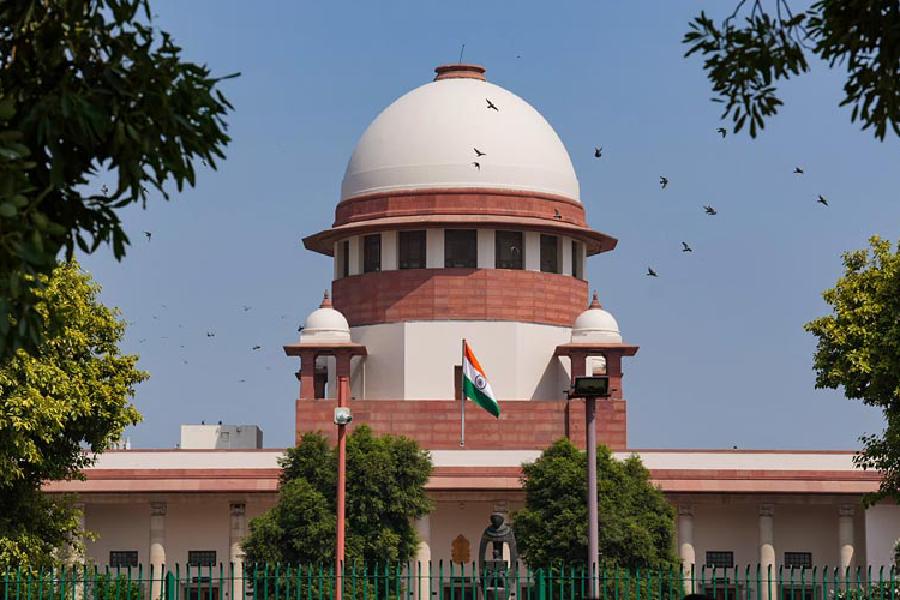The Supreme Court has agreed to hear on May 17 an appeal by some of the family members of those killed in the 2008 Jaipur serial blasts challenging the Rajasthan High Court verdict acquitting four men, who were handed down death penalty by a trial court in the case.
Jaipur was rocked by a series of blasts on May 13, 2008 when bombs went off one after another at Manak Chawk Khanda, Chandpole Gate, Badi Chaupad, Chhoti Chaupad, Tripolia Gate, Johri Bazar and Sanganeri Gate. The explosions left 71 people dead and 185 injured A bench of Justices Abhay S Oka and Rajesh Bindal considered the submissions of senior advocate Mukul Rohatgi, appearing for some of the families of the victims of the blasts. The senior lawyer also sought a stay on the high court’s judgement.
The Rajasthan government had on April 25 filed an appeal challenging the high court verdict in the case.
The top court on May 12 permitted family members of the victims of the blast to file an appeal against the verdict and listed the petition with that of the state government for hearing on Wednesday.
“Diary No....is taken on board. Permission to file SLPs (Special Leave Petition) is granted. Leave granted. Liberty is granted to file an application for early hearing after respondents are duly served. List on May 17...along with SLP(Crl.) ...(of Rajasthan government),” the bench ordered on Friday.
The Rajasthan High Court on March 29 had set aside the lower court verdict awarding death penalty to four accused in the case and slammed the probe agencies over their "shoddy investigation".
The high court had also affirmed the acquittal of a fifth accused by the trial court.
It had lambasted the investigating agencies for doing a shoddy investigation in connecting the chain of evidence and also directed Rajasthan's director general of police to take action against the officers involved in the investigation.
“We hold the investigating agency in the given case should be made responsible/accountable for their negligent, cursory, and inefficient actions,” the high court had in its verdict.
“In spite of the case being of heinous nature, 71 persons losing their lives and 185 persons sustaining injuries, causing unrest in the lives of every citizen, not just in the city of Jaipur, but all across the country, we deem it appropriate to direct the Director General of Rajasthan Police to initiate appropriate Enquiry/Disciplinary Proceedings against the erring officers of the investigating team,” it had said.
The high court had said that it is difficult to hold that the prosecution had proved the guilt of the accused by adducing cogent and clinching evidence.
“The circumstantial evidence must be complete and incapable of explanation of any other hypothesis than that of the guilt of the accused and such evidence should not only be consistent with the guilt of the accused but should be inconsistent with his innocence. In the present case(s), the prosecution has failed to do so, resultantly, the Court is left with no alternative but to acquit the accused,” the order said.
The court had also observed that it may be true that if accused(s) in a heinous crime go unpunished or are acquitted, a kind of agony and frustration may be caused to the society in general and to the family of the victims in particular. However, the law does not permit the courts to punish the accused on the basis of moral conviction or on suspicion alone.
In December 2019, a special court awarded death sentence to four men --Mohammad Saif, Mohammad Salman, Saifur and Mohammad Sarvar Azmi -- and acquitted another accused, Shahbaz Hussain.
While the state government challenged the acquittal of Shahbaz Hussain in the high court, the four awarded capital punishment filed an appeal against the trial court order.
Except for the headline, this story has not been edited by The Telegraph Online staff and has been published from a syndicated feed.











